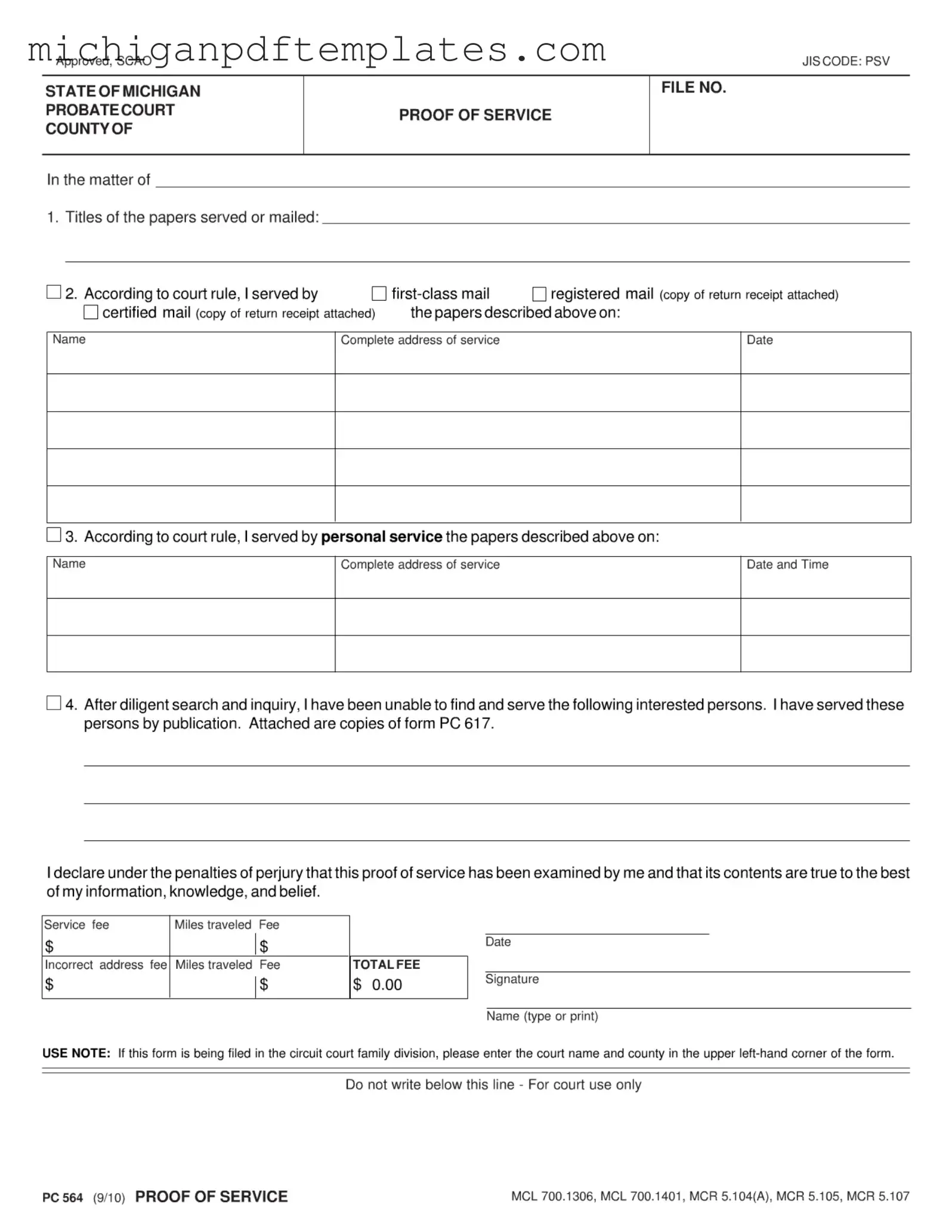Fill in Your Michigan Probate Form
The Michigan Probate form is an essential document used in the probate process, primarily to provide proof that legal papers have been served to interested parties. This form outlines how and when these documents were delivered, ensuring that all necessary individuals are informed about the proceedings. To fill out the form, click the button below.
Get Your Form Now

Fill in Your Michigan Probate Form
Get Your Form Now

Get Your Form Now
or
▼ PDF Form
Finish this form quickly and move on
Fill in and complete Michigan Probate online quickly.